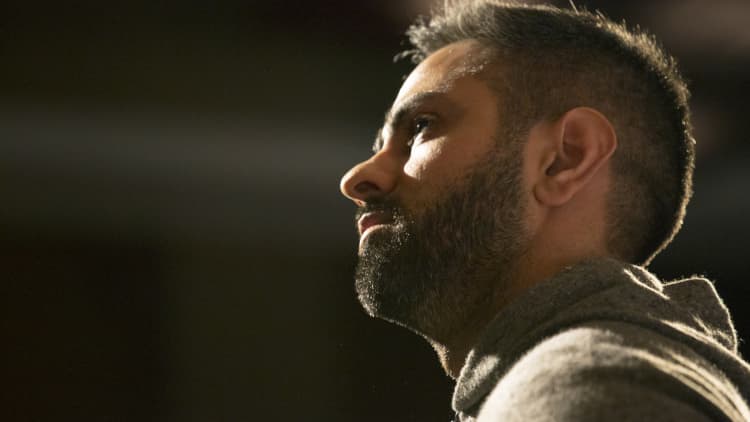How well did high-tech transportation companies Uber and Lyft react to President Donald Trump's so-called "Muslim ban"?
Twenty-one business school professors analyzed and graded the corporate responses, and their consensus is that Lyft handled the situation better than Uber.
The professors give Lyft a B and Uber a C+.
Responding professors are part of The Real Time Expert Poll, a panel of experts from 39 world-renowned universities, including Oxford, Cornell, Columbia, INSEAD, Georgetown, Princeton and the University of Pennsylvania. Organized by Drexel LeBow's Institute for Strategic Leadership in partnership with the American Marketing Association, The Real Time Expert Poll grades companies when they take political stands.
LYFT'S RESPONSE
San Francisco-based Lyft publicly opposed the Muslim Ban and announced that it would donate $1 million to the the American Civil Liberties Union over the next four years.
"Banning people of a particular faith or creed, race or identity, sexuality or ethnicity, from entering the U.S. is antithetical to both Lyft's and our nation's core values," Lyft's co-founders wrote in an official company statement.
"We stand firmly against these actions, and will not be silent on issues that threaten the values of our community."
Lyft's co-founder and CEO, Logan Green, also tweeted out a message calling the President's executive order "antithetical to both Lyft's and our nation's core values."
UBER'S RESPONSE
Uber's CEO Travis Kalanick said that he would bring the issues to Trump's attention when he next meets with him.
"While every government has their own immigration controls, allowing people from all around the world to come here and make America their home has largely been the U.S.'s policy since its founding," Kalanick wrote in a letter to Uber staff, which he shared on his Facebook page.
"That means this ban will impact many innocent people — an issue that I will raise this coming Friday when I go to Washington for President Trump's first business advisory group meeting."
Kalanick also said that Uber would be working to identify any drivers unable to return to the U.S. because of the immigration ban and compensate them so that their families are not left without a source of income.
"But whatever the city or country — from the U.S. and Mexico to China and Malaysia — we've taken the view that in order to serve cities you need to give their citizens a voice, a seat at the table," says Kalanick. "I understand that many people internally and externally may not agree with that decision, and that's OK."
He said that Uber would create a $3 million legal defense fund to help drivers with immigration and translation services.
Many users disagree with Kalanick's participation in Trump's advisory council, and the company's response to the Muslim Ban was perceived to be lacking in conviction.
Customers were also angered that Uber did not stop service to New York's JFK airport, where several immigrant detainees were being held. The New York City Taxi Workers Alliance had ordered a temporary halt to rides heading to JFK on Saturday, so Uber drivers were seen as scabs.
A spokesperson later apologized and clarified that Uber had not "meant to break up any strike." By that point, a boycott had already taken hold.

Users, including celebrities, deleted the Uber app from their phones and the hashtag #DeleteUber went viral on social media.
NEITHER RESPONSE WAS PERFECT
Uber's attempts at crisis management earned it a just-barely-passing grade from experts, while Lyft garnered a respectable B.
"The panelists clearly see Uber as on the losing end of this political development. Not only has it harmed the brand psychologically, but there appears to be a migration to Lyft," says Daniel Korschun, an associate professor at Drexel's LeBow College of Business, and lead administrator of the poll, in a statement released with the results.
"President Trump's executive order has revealed a stark difference between these two companies," Korschun says.
Continuing to have cars operating to and from JFK over the weekend didn't align with Kalanick's Facebook messages, the business professors felt.
But not all of the professors were impressed by Lyft, either.
The panelists clearly see Uber as on the losing end of this political development.Daniel Korschunassociate professor at Drexel's LeBow College of Business
"Lyft seems gratuitous in its one-off donation," wrote one anonymous panelist. "How much of a lasting impact can $1m to ACLU be? They're throwing away money without creating a lasting impact."



